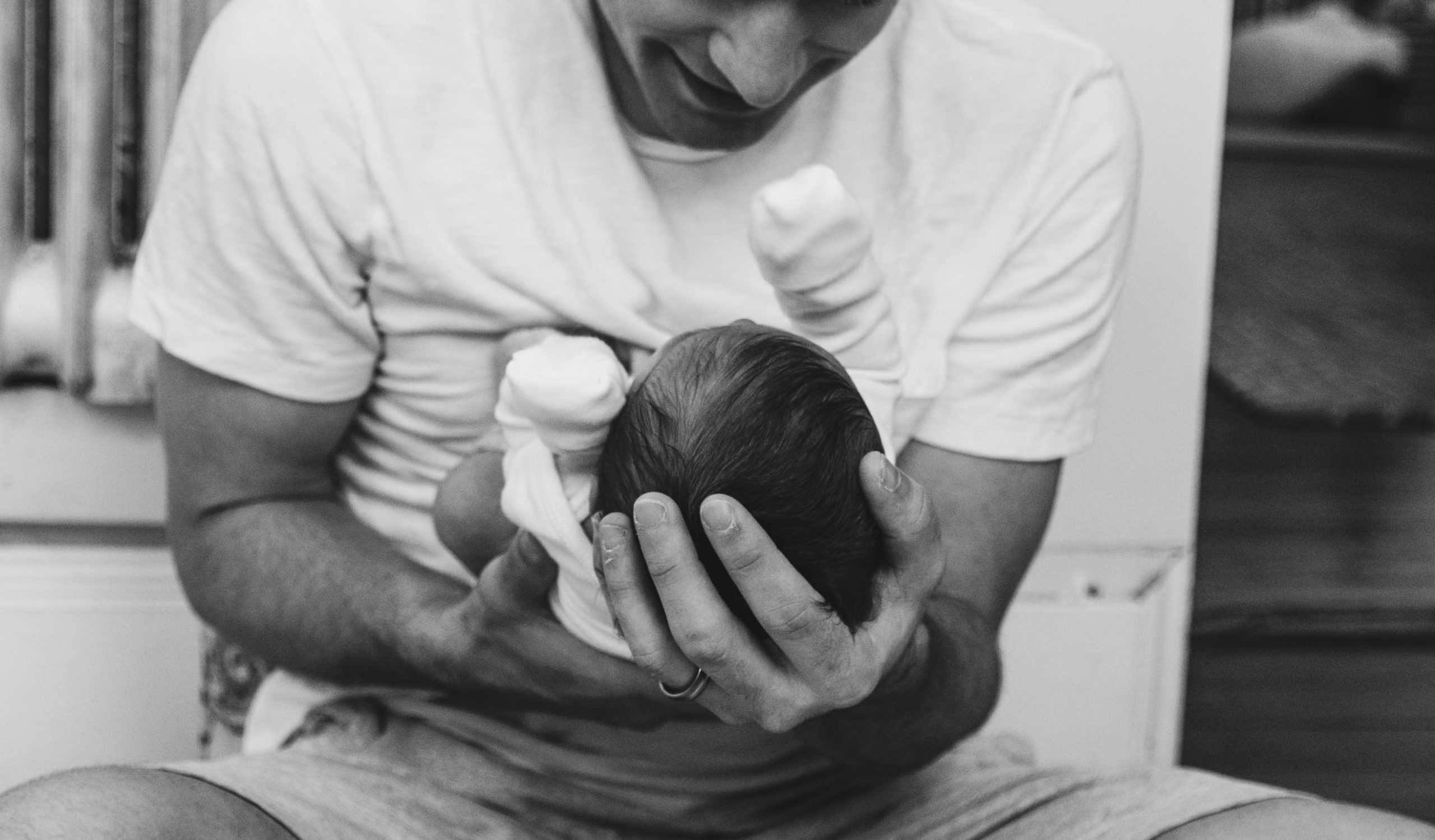Supporting Your Wife Postpartum
This period of time will look different for every family and depending on how your wife’s delivery went, she may have different needs. If she had a c-section, she’ll be recovering from a surgery as well as trying to take care of a newborn. Your role as father and husband is going to be one of support, encouragement, provision and protection.
Get the free DadWise Birth-plan
More from this blog series: A Dad’s Guide to Pregnancy
Food
Food is going to be a huge part of nourishing your wife back to health. If you haven’t already, pick up a copy of The First 40 Days. This will give you insight into how to properly feed your family postpartum. The goal is to get her filled up with warm, vitamin-rich foods. Stay away from breads and cheeses. Soups, broths, teas and other warm liquid foods will be staples during this period.
Sleep
This is the nightmare that everyone warned you of. Lack of sleep while trying to take care of a new baby can wreak havoc on a family and your mental health. You may feel like a zombie for a while and you may be on a short fuse but try your best to push through this time. I hear of a lot of young couples that do everything together. They both get up at night to feed or change the baby. Whenever the baby cries, they’re in it together. This may seem like a good idea but it just makes you both equally exhausted. I recommend working in shifts. If your wife is breastfeeding, she can take the evening shifts while you sleep and then you can take the baby during the day while she naps. Figure out something that works for you both but make sure you both are getting as much sleep as possible.
Chores
We are fortunate to have our in-laws in town when we have babies so they help with a lot of the day-to-day stuff around the house. If you don’t have help, you’ll be the one cooking, cleaning and running the house while your wife is recovering and tending to the baby. Typically the first 40 days after birth are a period of intense recovery and then after that, life gets back to a more normal rhythm. Plan to spend about a month doing everything that your wife normally does so she can focus on the baby.
Recovery
There may be some medical recovery from the birth that you’ll have to help your wife with. There is bleeding during the first week(ish) after the baby comes and if there was tearing, that will take time to heal. Do you best to make sure your wife recovers well from her birth and follow your doctor’s recommendations. You’ll want to be there for her doctor’s visits if possible to help support her and ask questions of the doctor or midwife.
Emotions
Postpartum depression is real and it comes and goes as it pleases. There are a lot of opinions and suggestions for how to handle and get through it but when you are in the thick of it, its hard to see a way out. We have noticed that when my wife is breastfeeding, she feels much better. The longer you can keep this up the better. We have stopped breastfeeding at different times with each kid but it seems like when she tapers off slowly around the 2 year mark, she can avoid most postpartum depression.
The combination of lack of sleep, stress of taking care of a baby, family visits, changing roles, hormones and financial stress can be a deadly cocktail. Make sure you communicate well with your wife and get her support when necessary.
Protect against family
You’ll be bombarded with people wanting to come see the baby but here is the good news, you don’t have to do anything you don’t want to. Take your time introducing your baby to the world. Everyone is very excited but don’t let them determine your decisions. Send them a picture if you want to and tell them that you’ll invite people over when you’re ready.
Stay In
Don’t be in a rush to get out of the house after baby comes. Spend plenty of time in the house connecting as a family and avoiding your obligations to the outside world. Hunker down. You might incorporate walks into your rhythm after a week or two or when your wife’s body is feeling better but it is important for her to let her body heal before being too active. This is a precious time. People wear it as a badge of honor when they can get out there so soon but take it easy, you have nothing to prove.
Do Baby Stuff
You’ll want to practice changing diapers before they get to wild. Diapers at this age are pretty mild. They basically just poop out breastmilk. This is when you want to get your reps in, before they start dropping massive loads. You’ll also want to get good at wearing the baby in a carrier so that you’re comfortable when you go out on walks later on. Carrying a baby is a great way to connect, and they usually love being close to mom or dad. If you can feed the baby with pumped breastmilk or formula, do it. It is a great way to connect with your baby. Stay off your phone and just stare into their eyes or read a book out loud to them. You are a dad now, get involved and start honing the skills of fatherhood.
Bath Time
We usually bathe our babies until they start getting dirty which is when they start walking. It can be fun for parents but there is really no reason to do it and it might even be harmful. Babies are covered with vernix when they are born and this is an important liquid that helps to protect their skin. Bath time can dry out their skin and remove their natural juices that are there for a reason. A simple wipe down when they spit up will suffice for keeping them clean. And you also don’t want to remove that new baby smell! Read more about it here if you aren’t convinced.
Conclusion
You’re off to the races! You have a baby! This is just the first step into a lifetime of parenting. Do your best to stay active and engaged during this early season but know you won’t get everything right and babies are resilient little creatures. Stay connected to community and ask a lot of questions. Join the DadWise Facebook group to stay connected with a community of dads on mission to live and lead their families in wisdom.
More from this blog series: A Dad’s Guide to Pregnancy






